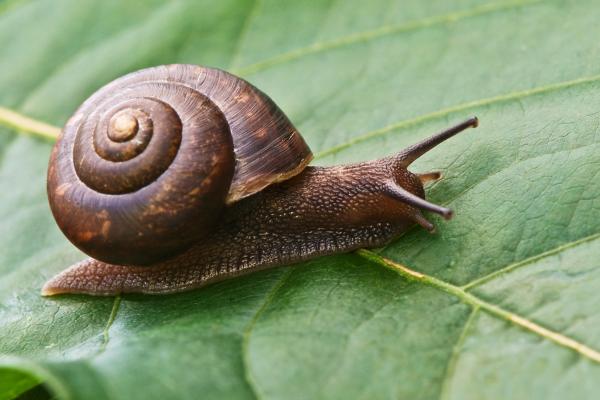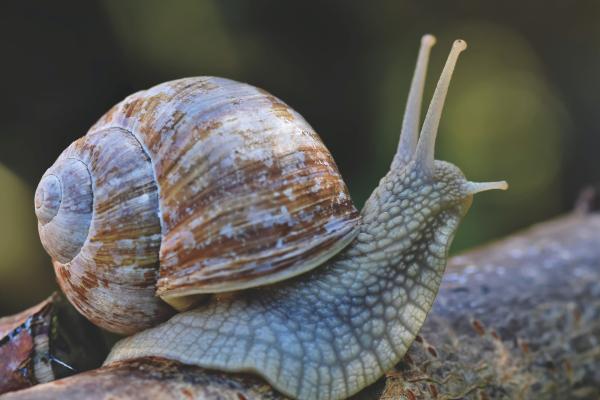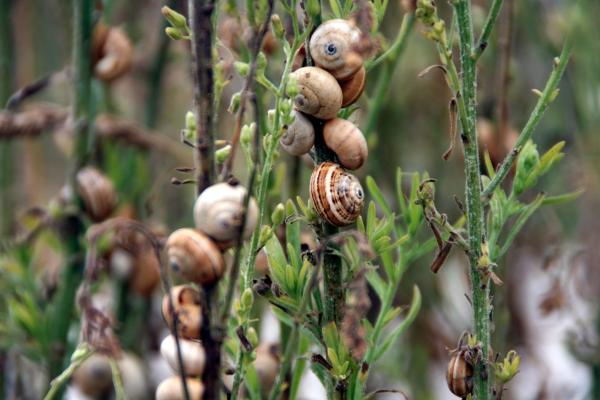Land snails are visible mollusks characterized by their coiled shells and soft, moist bodies. They belong to the phylum Mollusca and class Gastropoda, the largest and most diverse class within mollusks. Their development of lungs has enabled them to colonize terrestrial habitats, where they primarily feed on plants.

Land snails are invertebrate pulmonate animals within the order Stylommatophora, known as "stalk-eyed snails." Unlike aquatic snails, they have lost gills and developed lungs for breathing air—a crucial adaptation for terrestrial life.

Lost primitive gills; lung formed from vascularized mantle cavity with an opening called the pneumostome.
Possess hard, single-piece shells protecting internal organs and preventing dehydration and predation.
Some species, such as those in the Clausiliidae family, have a clausilium structure to close the shell aperture.
Have a broad muscular foot secreting mucus for locomotion and adhesion.
Equipped with two pairs of tentacles; eyes located at the tips of the upper pair.
Mantle covers the visceral mass, providing protection.
Garden Snail (Cornu aspersum): Native to Europe, widely introduced globally, considered invasive in some areas, popular in Mediterranean cuisine.
Decollate Snail (Rumina decollata): Native to the Mediterranean and North Africa, omnivorous, preys on garden snails, slugs, and eggs.
White-Shelled Snail (Helicella stiparum): Characterized by a solid white shell, adapted to dry soils in southern Spain.
Door Snail (Megalophaedusa martensi): Endemic to Japan, the largest living member of the Clausiliidae family.
Giant Tiger Snail (Achatina achatina): Native to West Africa, grows up to 18 cm, one of the largest terrestrial snails worldwide.
Plagiodontes rocae: Endemic to southwestern Buenos Aires Province, Argentina.

Land snails inhabit a wide range of environments influenced by soil mineral content, moisture, temperature, and acidity. While favoring humid, shaded areas, some species thrive at high altitudes and harsh conditions. Common habitats include forests, meadows, roadsides, urban vegetated spots under leaf litter, roots, and soil depressions. They also adapt to xeric, calcareous, and volcanic soils, as well as stream banks and mountainous areas.

Most land snails are herbivores, feeding on various plants at night. Some species are omnivorous, consuming other mollusks. Their shells and egg casings are primarily calcium carbonate, requiring dietary calcium to maintain shell strength. Calcium deficiency or pH fluctuations may cause thin, cracked, or perforated shells.

Land snails are hermaphrodites producing both eggs and sperm. Mating involves complex courtship and spermatophore transfer. In some Helicidae, a calcareous dart is used during mating to stimulate reproductive roles. Eggs are laid in soil in small clusters, wrapped in albumin and protective capsules supplying calcium for shell formation.
If you want to learn more about land snails, please explore our related articles on “Parts of a Snail” and “How Long Do Snails Live.”
animal tags: Land Snails
We created this article in conjunction with AI technology, then made sure it was fact-checked and edited by a Animals Top editor.